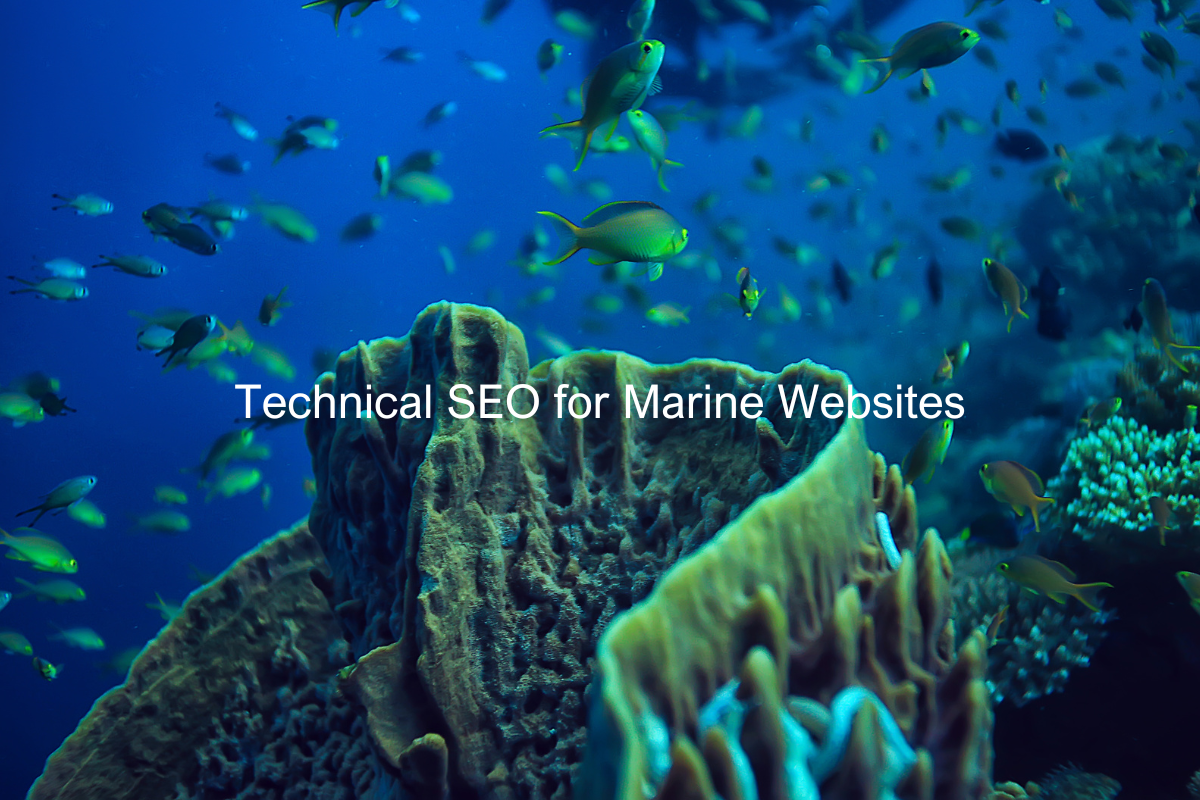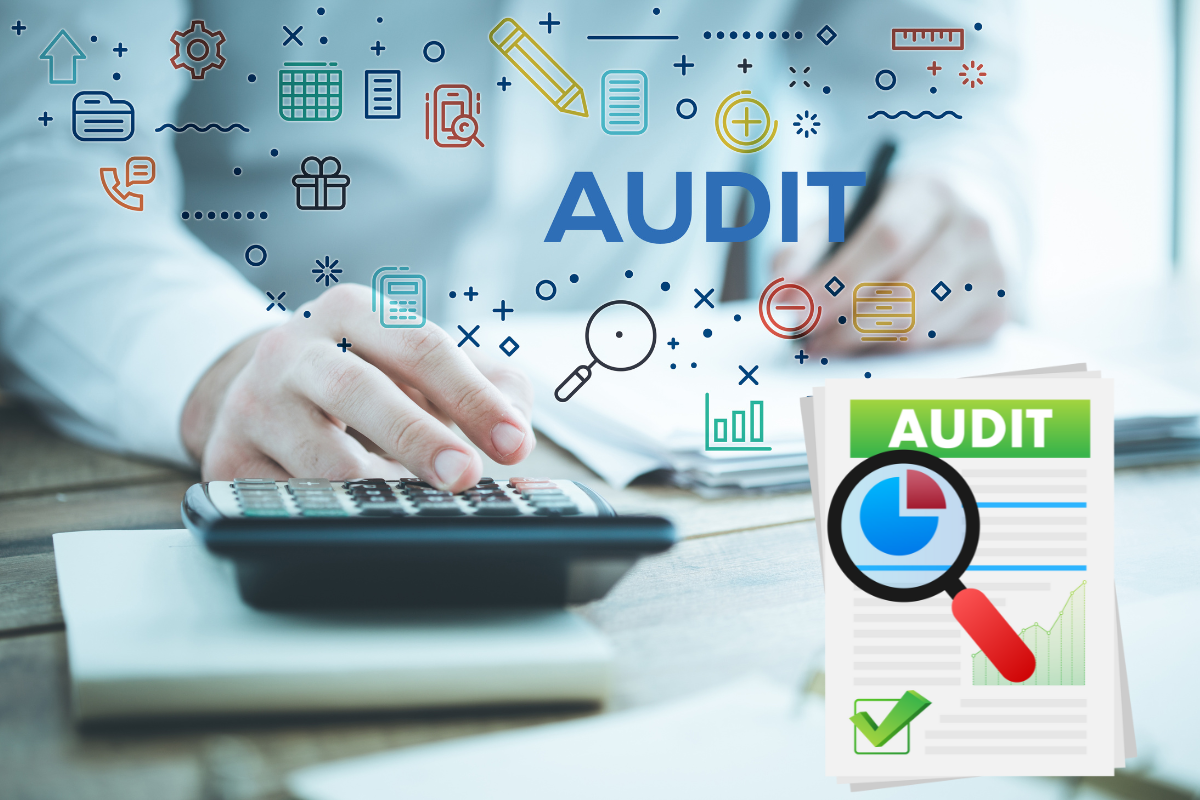Technical SEO for Marine Websites:
Ensuring Your Site is Ready for Search Engines
The marine industry is as competitive online as it is on the water. From yacht brokerages to marine e-commerce stores, having a robust digital presence is no longer optional. While compelling content and stunning visuals are essential, the foundation of a successful website lies in Technical SEO. This ensures your marine website is optimized for search engines, making it easier for potential customers to find you.
In this article, we’ll delve into the essentials of technical SEO for marine websites, including site speed optimization, mobile-friendliness, crawlability, and structured data. Let’s get your marine website ready to sail through the search engine ranks.

Why Technical SEO Matters for Marine Websites
Technical SEO ensures your website is optimized for search engine bots while providing a seamless user experience. For marine businesses, this is critical because:
- Increased Visibility: A well-optimized site ranks higher in search engine results, attracting more organic traffic.
- User Experience: Faster, mobile-friendly sites keep visitors engaged, increasing the likelihood of conversions.
- Competitive Edge: Outpacing competitors in the marine niche often comes down to better technical SEO practices.

Core Elements of Technical SEO for Marine Websites
1. Site Speed Optimization: Keeping Your Website Fast
Marine customers searching for products or services online expect your website to load quickly. Slow websites frustrate users and are penalized by search engines.
Tips for Site Speed Optimization:
- Compress Images: Use tools like TinyPNG to reduce the size of your marine product photos without compromising quality.
- Leverage Browser Caching: Store frequently accessed data locally to speed up load times for returning visitors.
- Optimize Code: Minify CSS, JavaScript, and HTML to remove unnecessary spaces and comments that slow your site.
- Use a Content Delivery Network (CDN): Distribute your site’s assets through a CDN to decrease latency for global users.
Some Tools to Measure Speed:
- Google PageSpeed Insights
- GTmetrix
- Pingdom Tools
2. Mobile-Friendliness: A Necessity, Not an Option
With the majority of customers using smartphones to browse the web, having a mobile-friendly marine website is essential. Google’s mobile-first indexing prioritizes mobile-friendly sites, so this isn’t something you can overlook.

How to Ensure Mobile-Friendliness:
- Use responsive web design to adapt to different screen sizes.
- Optimize menus and navigation for touchscreens.
- Test your website on various devices using tools like Google’s Mobile-Friendly Test.
A mobile-optimized site makes it easy for users to browse your inventory, view boat listings, or inquire about services while on the go.
3. Crawlability: Making Sure Search Engines Can Find You
Search engines need to crawl your site efficiently to index its content. If your site has errors or inaccessible pages, you’re losing potential rankings.
Steps to Improve Crawlability:
- Submit an XML Sitemap: This acts as a roadmap for search engines, highlighting all important pages on your site.
- Fix Broken Links: Use tools like Screaming Frog or Ahrefs to identify and resolve 404 errors.
- Use Robots.txt Correctly: Ensure your robots.txt file isn’t blocking essential pages from being crawled.
- Avoid Duplicate Content: Duplicate pages confuse search engines and dilute your rankings.
By improving crawlability, search engines can index your marine website’s inventory, blog posts, and service pages more effectively.

4. Structured Data: Speaking Search Engines’ Language
Structured data, or schema markup, helps search engines understand your website’s content better. For marine websites, this can mean enhanced visibility in search results through rich snippets.
Types of Schema to Use:
- Product Schema: Highlight details about boats, parts, or accessories for sale.
- Service Schema: Showcase repair, maintenance, or brokerage services.
- Review Schema: Display customer reviews directly in search results to build credibility.
- Event Schema: Promote upcoming boat shows or marine industry events.
Use tools like Google’s Structured Data Markup Helper to implement schema markup effectively.
Advanced Technical SEO Tips for Marine Websites
A. Secure Your Site with HTTPS
A secure website isn’t just about protecting data—it’s a ranking factor. Customers are more likely to trust and transact on sites with HTTPS encryption.
B. Optimize Your URL Structure
Keep URLs short, descriptive, and keyword-rich. For example:
- Good URL: yourxmarinebusiness.com/yacht-maintenance-services
- Bad URL: yourxmarinebusiness.com/page123
C. Implement Canonical Tags
Prevent duplicate content issues by specifying the canonical version of your pages. This is especially important for marine e-commerce sites with similar product pages.
D. Monitor Website Performance
Regularly audit your site’s technical health using tools like:
- Google Search Console
- Ahrefs Site Audit
- SEMrush Site Audit
- SERanking Audit

Measuring the Success of Your Technical SEO Efforts
Tracking your efforts ensures you’re on the right path. Monitor these key metrics:
- Organic Traffic: Check if more visitors are finding you through search engines.
- Bounce Rate: A high bounce rate may indicate technical or usability issues.
- Search Engine Rankings: Track rankings for targeted keywords like Technical SEO for Marine Websites.
- Core Web Vitals: Metrics like Largest Contentful Paint (LCP) and Cumulative Layout Shift (CLS) measure user experience and are part of Google’s ranking factors.
Go Technical
Keep this in mind: your website’s technical foundation can make or break your online presence. From optimizing site speed to implementing structured data, technical SEO for marine websites is essential for search engine success. By following the strategies outlined here, you’ll ensure your website is ready to sail past the competition and attract a steady stream of organic traffic.
Ready to optimize your marine website? The Digital Deckhand specializes in SEO strategies tailored to the marine industry. Contact us today to elevate your online presence!
Ready to take your business to the next level?
We are ready to help develop your strategy to success. Are you ready to get started?
Enhance Your Online Presence
Making waves in the marine industry requires more than just a great product or service—it demands a powerful digital presence. To attract customers and grow your business in the vast online ocean, you need to implement effective strategies that enhance your visibility and engage your audience. This means strengthening your online presence with a user-friendly website and strong SEO, leveraging social media to build a community around your brand, embracing influencer marketing to reach new audiences, and actively participating in the boating community to build trust and authority. By staying adaptable and creative, you can navigate the digital landscape and steer your marine business toward a prosperous future.
Remember, the key to successful marine marketing lies in staying connected with your audience, providing value, and consistently adapting to the ever-changing digital tides. With the right strategies in place, your marine business can navigate the digital seas with confidence, making a lasting impression on customers and driving your brand to new horizons.
